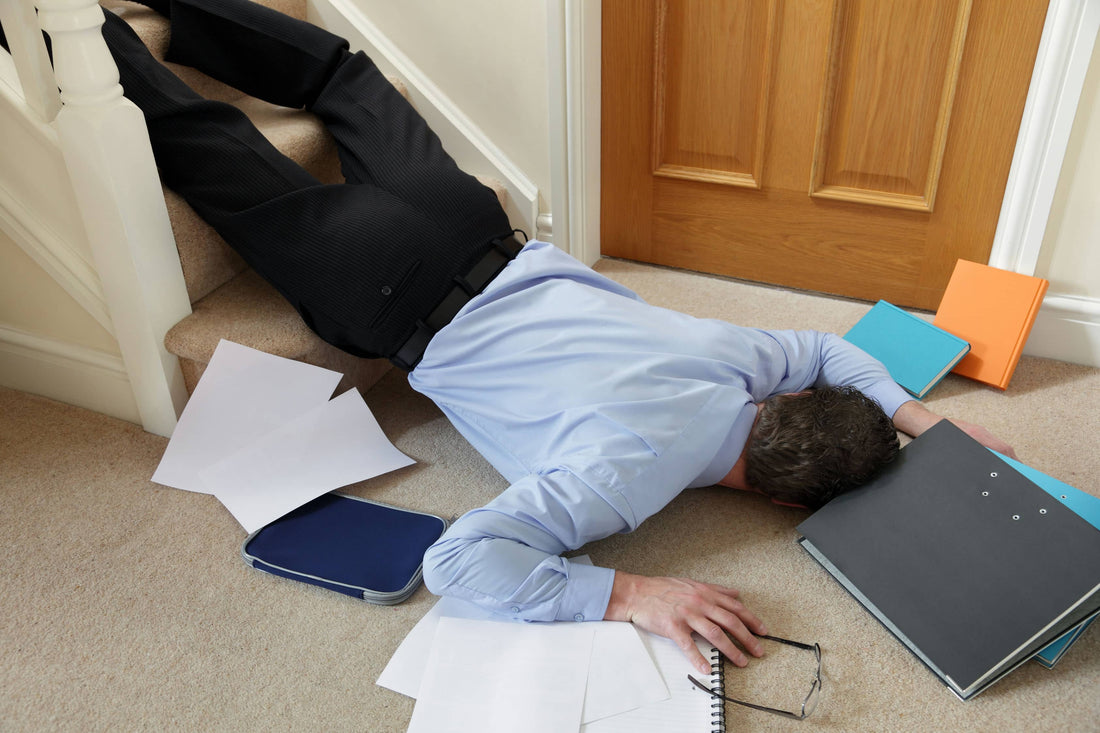
Better Sleep Month: Is Missing out on Sleep Making You a Klutz?
Share
Losing out on sleep can have some pretty negative effects on your health and well-being, including poor work performance, irritability, and even weight gain. But one of the most common side effects of not getting enough sleep may be something that you’ve never even thought to link to sleeplessness.
If you’ve ever felt even more klutzy than usual after a sleepless night or two, there is science to back up the fact that missing out on sleep is what’s causing you to trip over your own feet, miss a stair on the way into your office building, or bump into walls.
Recent studies by sleep experts and health professionals have shown that a good night’s sleep can improve your motor skills by up to 20% and that means that when you’re not getting quality rest, your motor skills are that much more impaired.
Those participants in the sleep studies that weren’t getting enough REM sleep were shown to have a harder time in not only learning new tasks but also accomplishing tasks that they were familiar with before the study took place.
Not getting enough sleep, as well as getting poor quality sleep, has been linked to poor reflexes and impaired depth perception. Both of these will cause you to stumble when you walk, trip over yourself, and exhibit truly clumsy behavior.
Clumsiness can not only be annoying and embarrassing, it can also be dangerous. Many on-the-job accidents have been linked to sleep deprivation. And researchers have found that 37% of American adults have fallen asleep behind the wheel, causing accidents that range from mild to fatal on roadways all across the country.
The best way to avoid these negative effects of sleeplessness is by getting a good night’s sleep, which can be easier said than done! Sleep experts have stated that 60% of the US population suffers from sleep deprivation at any given time, and if you’ve ever had trouble getting enough sleep, you know how stressful it can be to feel like you’re unable to get the sleep you need.
One of the best and easiest ways to help ensure that you’re getting enough sleep is to create a bedtime routine that includes turning off all electronics and harsh lighting at least two hours before bed, setting out the clothes and supplies that you’ll need in the morning, and focusing on relaxation before you even enter your bedroom.
A supportive and comfortable place to lay your head is also very important, as tossing and turning during the night can cut down on the amount of time that you are getting high-quality sleep. Look for premium gel foam mattresses that offers even weight distribution, proper spinal alignment, and temperature regulation. These qualities are very important in a good mattress, and should not be looked over or written off.
Taking some extra time and trouble to get at least the recommended seven hours of sleep per night can go a long way to help you from suffering the embarrassment, annoyance, and possibly even dangerousness of becoming a klutz due to lack of sleep.
